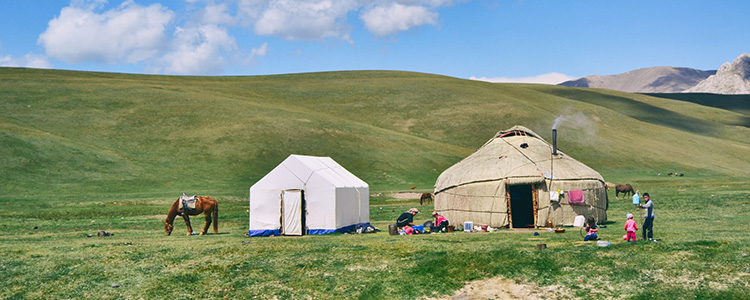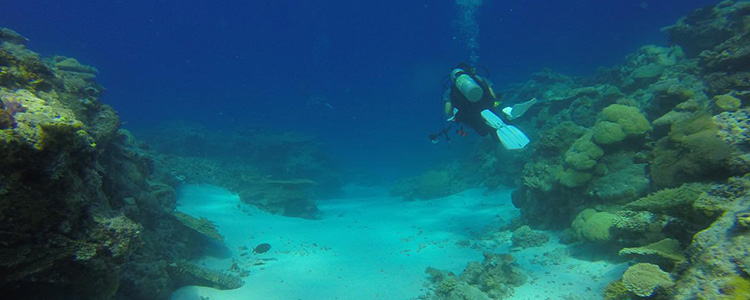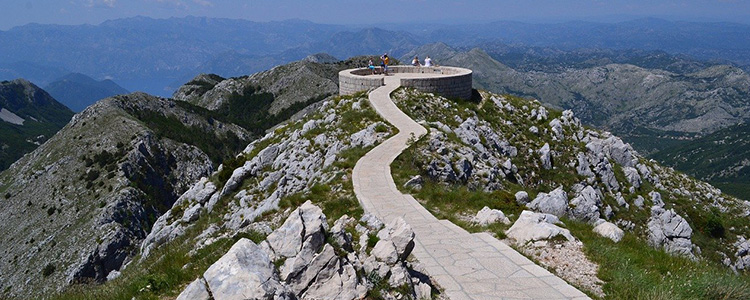Portugal Country Bundle: suggestions, stories and tips
Content about Portugal on WorldSupporter
 Portugal: Updates & Travel
Portugal: Updates & Travel
Travel in Portugal
- Portugal's popularity as a holiday destination is growing every year. And rightly so, because there is plenty to see in Portugal: the fairytale palaces of Sintra, the dizzying ravines in the Serra da Estrela, Lisbon with its romantic neighbourhoods and the snow-white villages in the Alentejo. You can eat delicious food while listening to the melancholic fado music.
- Visit the castles near Sintra. This place (which actually consists of three villages) near Lisbon is world famous for its palaces that are a mixture of different styles (real architecture purists shudder at this). The forest is also fairytale-like with mist (which often occurs).
- Listen to the famous Portuguese Fado music in a café.
- Spot dolphins near the pleasant seaside resort of Lagos in the Algarve.
- Eat the delicious bacalhau (cod) on one of the many terraces.
- Visit one of the famous Port houses in Porto and enjoy this typical Portuguese drink. JoHotspots in Portugal
- Lisbon: The capital of Portugal combines history, coziness and beautiful sights such as the ‘Tower of Bélem’. Take the old-fashioned Tram 28 for an atmospheric tour through the city and visit the cozy bars and cafés in Barrio Alto.
- Porto is the second largest city in Portugal, but almost equal in atmosphere, coziness and sights. Porto is built on both sides of the Douro River and a boat trip on this river is the best way to admire the city. You can easily walk to Santiago de Compostela from Porto.
- Viana do Castello is the best kept secret of Portugal. This small town in the north is the epitome of peace and tranquility with beautiful white houses and stunning nature. The name ‘Jewel of the Costa Verde’ is certainly not an exaggeration.
- Coimbra and Braga are the two largest student cities in the country. During the semesters they are lively and cozy cities, especially during the summer holidays it can be quite deserted. The university library is worth a look inside. The Algarve is famous for its beautiful beaches and charming fishing villages. There are many nice villages and beaches, but Lagos and Tavira are among the most beautiful. In the summer, some places can be touristy and crowded, but there are always small, quiet and typical Portuguese villages nearby.
- Fatima, is a difficult to reach place of pilgrimage where Mary is said to have appeared several times.
- Don't be surprised if you see people crawling on their (bare) knees across the church square and lighting candles while crying to thank God or to do penance. Especially because the square and the gigantic church are literally blindingly white in the summer, it all seems quite unreal.
- Be aware that forest fires occur every year in Portugal. Especially in the summer months, forest fires can cause a lot of damage. Avoid areas with forest fires as much as possible.
Updates Portugal
- More about Portugal, updates and contributions, see the link below.
 How does health care work in Portugal, and what travel insurance, health insurance or expat insurance do you need?
How does health care work in Portugal, and what travel insurance, health insurance or expat insurance do you need?
How does the health care system work in Portugal?
- Health care in Portugal is of very good quality and also affordable.
- Once you have received your local citizen service number (número de contribuinte) and residence card (Título de Residência), you will receive a health care number (número de utente) that will register you with the national health care system.
- The quality of care varies greatly between cities and rural areas. In rural areas, you have far fewer options and also fewer doctors who speak English.
- There are many pharmacies in Portugal, with well-qualified pharmacists. In the cities, most also speak basic English. Most prescription medication is also free or very cheap.
- Mental health is a problem in Portugal. Depression rates are higher than average and few psychiatrists are available. To get help, you must first see your family doctor.
- Emergency services are generally fast and efficient. Call 112 for a medical emergency.
How does the public health care work in Portugal?
- The country has an extensive public health care system. Under this healthcare system, run by the Serviço Nacional de Saúde (SNS), most essential care is free.
- EU citizens can use this system for up to 90 days if they have a European Health Insurance Card (EHIC).
- After 90 days, they must register as residents to continue enjoying care.
- Non-EU citizens can use this system only if they have a job in Portugal and also pay for social security here.
- You then pay a very small contribution for your medical expenses.
- There is a second public system, namely the Health Subsystem Program, which focuses specifically on medical care for people in certain professions (such as police, military, banking).
- Also in Portugal, public care is unfortunately overburdened and understaffed.
- So many expats choose private care, and have international private health insurance for fuller coverage and better care.
How does the private healthcare work in Portugal?
- Private healthcare is a lot faster and equipped with the conveniences you may be used to as an expat.
- Many expats, as well as locals, still have private insurance to fill the gaps in health care options - such as dental care, for example, and to get their turn faster.
- You are more likely to get hold of an English-speaking doctor.
- Be prepared that you may have to pay your fees up front.
How is the general practitioner arranged in Portugal?
- Often the first thing you do is register with a general practitioner, médico de família, or family doctor. You will be assigned one, or you can choose one yourself in your neighborhood, for example at a local health center (centro de saúde).
- If you have private insurance, you can go to any private clinic covered by your insurance.
- To make an appointment you will need a numero de identificação fiscal (NIF).
- If you don't have time to make an appointment, it's also worth just walking into the healthcare facility and waiting on the spot.
How is the dentist arranged in Portugal?
- Dental care is not covered by public insurance. So make sure you get private insurance with dental care coverage for this.
- Dental visits are quite affordable, especially compared to other European countries.
- Quality is high and in the cities you will find modern practices with English speaking staff.
How is the pregnancy, obstetrics and maternity care arranged in Portugal?
- During your pregnancy, you can visit both public and private institutions. Both provide good care.
- Make sure that you are registered at a local health center (centro de saúde), otherwise you cannot use the public medical services.
- Prenatal care and childbirth are largely covered by the SNS. Care is professional, but crowding in public hospitals can be a challenge.
- Medical tests are free, and the national vaccination program is also free.
- Most births take place in the hospital, although alternatives are becoming increasingly popular.
- Home maternity care, as we know in some other European countries, is not standard in Portugal. Mothers often stay in the hospital for several days after giving birth.
- After the birth, you get free checkups for the first 60 days.
How safe or unsafe is a trip or stay in Portugal?
What should you pay attention to in terms of safely in Portugal?
- Portugal is a very safe country.
- Pickpocketing occurs in touristy areas, but serious crime is rare.
What should you look out for in terms of diseases in Portugal?
- Tap water is safe to drink and is regularly tested.
- No special vaccinations are required.
What should you pay attention to when it comes to traffic in Portugal?
- The road network is modern and well maintained. The toll roads (autoestradas) are expensive but offer a fast and comfortable travel experience.
- The Portuguese are known for their assertive driving style. So be alert, especially on narrow mountain roads.
- Avoid driving in downtown Lisbon. The narrow streets and traffic are not for cowards!
Which work and travel insurance policies are suitable for short and long stays in Portugal?
- Is the trip to Portugal and your return sufficiently covered? Are you sufficiently covered before, during and after your activities? Which insurance best suits your trip and your activity? Read more about insurances for abroad on JoHoinsurances.org.
What emigration and expat insurance can you take out for Portugal if you are going to live there for a while?
- All expats in Portugal must show proof of private health insurance when applying for a temporary residence visa. Read more about insurances for abroad on Expatinsurances.org.
 Why to study in Portugal, do an internship, do volunteer work or look for a job in Portugal?
Why to study in Portugal, do an internship, do volunteer work or look for a job in Portugal?
Why study, intern, volunteer or work temporarily in Portugal?
- because there are many English-language courses available.
- because the student cities of Lisbon, Porto and Coimbra have vibrant and dynamic city life.
- because Portugal has a developed economy with many opportunities for internships and graduate jobs, especially in the tourism, technology and education sectors.
What should you pay attention to?
- that patience is a virtue, and you can develop your patience well in Portugal.
- that time is relative.
 Why live in Portugal, why emigrate to Portugal or stay for a long time?
Why live in Portugal, why emigrate to Portugal or stay for a long time?
Why live in Portugal as an expat, emigrant or working nomad?
- because conditions in Portugal are good in terms of security and safety, climate, nature and history.
- because Portuguese are community people and value friendships.
- because the cost of living is relatively low.
- because the work culture is hierarchical and formal.
- because Portuguese are open to ideas from foreigners.
What should you pay attention to?
- that it is difficult to find a job if you don't speak Portuguese.
- that local wages are generally low.
- that the Portuguese are generally more flexible with deadlines.
 Packing list for Portugal, travel insurance for Portugal, and taking your belongings
Packing list for Portugal, travel insurance for Portugal, and taking your belongings
What to take with you to Portugal: spotlighted
Featured items:
- Documents: passport that is valid for at least 6 months upon arrival. An online and/or offline copy of your passport.
- Money: euros, but you can also use your debit card almost everywhere.
- Care: sunscreen with a high factor and aftersun lotion, but if you forget you can also get it there.
- Outdoor and handy items: cap or hat and sunglasses. You will definitely need them. A light raincoat.
- Clothing: light clothing and layers. It is warm during the day, cool in the morning and evening. Beachwear and a beach towel.
- Shoes: comfortable (walking) shoes for all vowels. Flip-flops for the coast.
- Medicines and travel pharmacy: a small first aid kit.
- Technology and equipment: world plug type C & F (see also world plug or travel plug).
What are some other options for packing as well?
- Reusable water bottle.
- (Quick-drying) towel and swimwear for the beach and so that you do not have to pay for a towel every time at the hostel.
- Your own corkscrew for those bottles of port that otherwise won't open!
What should you keep in mind when traveling to Portugal with your belongings?
- Seasons and temperature of the regions you are visiting (spring in Porto is different from summer in Faro).
Are there mosquitoes in Portugal?
- Mosquitoes are there, especially in the summer. Annoying, but not a health hazard.
Are there sand flies in Portugal?
- Sand flies are definitely present on the beaches and in the warmer areas of Portugal
- More about sand flies and sand fleas.
Can you buy a joint or weed in Portugal, or take it with you to Portugal?
- Possessing small quantities (check the specific amounts) of soft drugs for personal use is an administrative offense. It can lead to fines, bans to visit certain places, or to attend treatment.
- Public use of soft drugs is still illegal and can lead to police intervention.
- Do not import drugs, also not for personal use, that is not allowed.



 Portugal
Portugal



























































